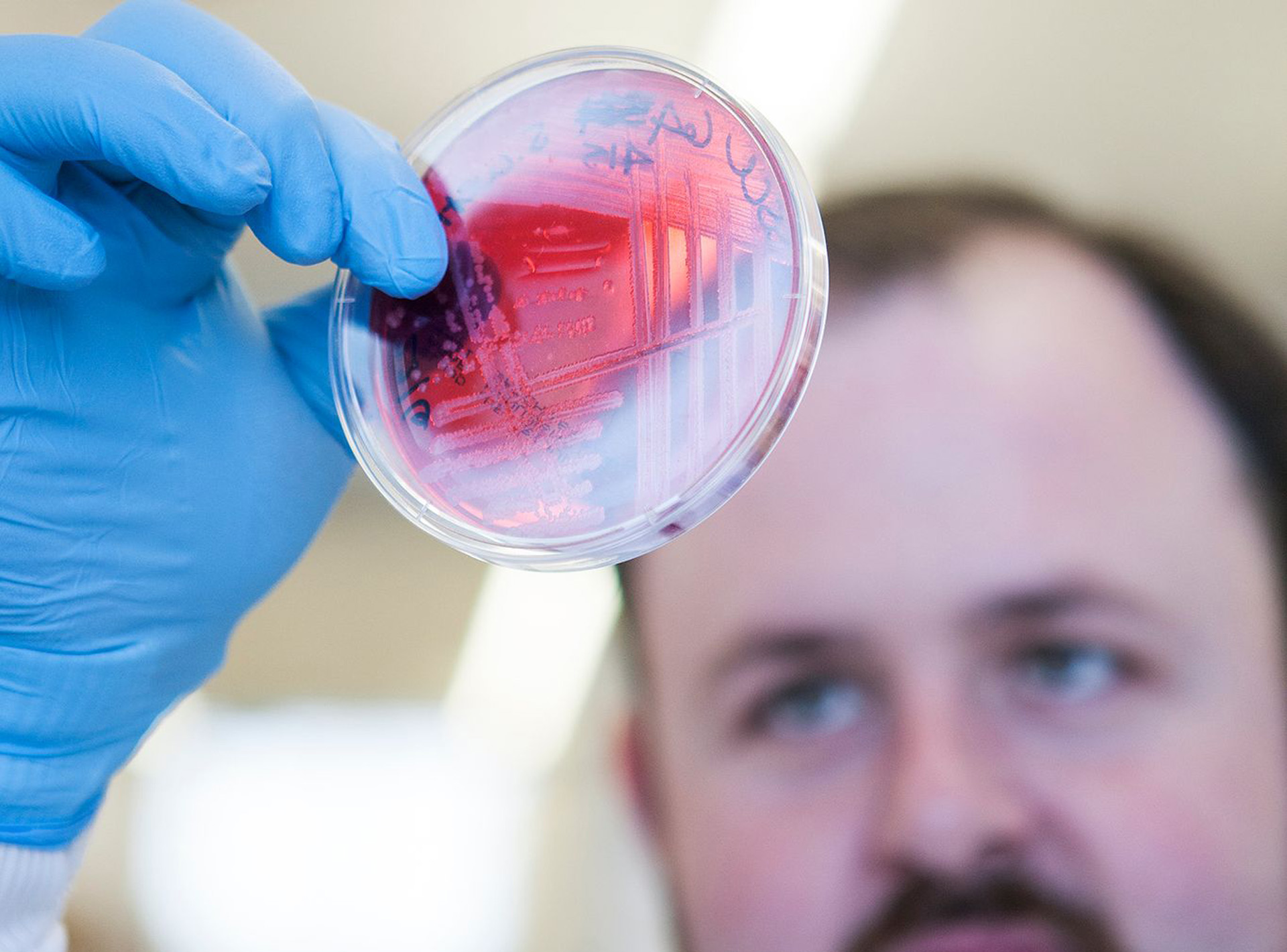 Perth researchers have made a global breakthrough by finding a way to fast-track the time it takes to identify a bacterial infection and treat the patient with the right antibiotics.
Perth researchers have made a global breakthrough by finding a way to fast-track the time it takes to identify a bacterial infection and treat the patient with the right antibiotics.
The lifesaving discovery will not only allow patients to be treated in hours instead of days, it will also help combat antibiotic resistance by prescribing the correct drugs for the infection.
The new method can detect the presence of a bacterial infection and determine which antibiotics will be most effective in less than five hours.
The finding by researchers from the Harry Perkins Institute of Medical Research, the University of Western Australia and PathWest Laboratory Medicine WA was published this week in the international medical journal The Lancet eBiomedicine.
Bacterial infections are a major cause of death in children and adults worldwide. Without effective antibiotics, patients deteriorate rapidly and can die within hours. Each year 1.2 million people die from infections resistant to antibiotics.
Waiting is costly
Current tests take 2-5 days to isolate infecting bacteria and identify the effective antibiotic. In cases of serious infection, every hour without effective antibiotics increases the risk of death by 6.7%.
UWA Forrest Prospect Fellow, Dr Kieran Mulroney, is among the Perth team. He said the established method of pinpointing the bacteria involved growing them from a patient sample and then applying different antibiotics to see which were effective.
“But patients with serious infections cannot wait the several days it can take to return antibiotic test results,” Dr Mulroney said.
“Consequently, the patient’s doctor has to rely on a best guess ‘one-size-fits-all’ antibiotic choice to treat patients.
“The biggest problem with prescribing broad-spectrum antibiotics is that it encourages some bacteria to become resistant to the antibiotics. This is a growing and serious problem world-wide, because antibiotic resistant bacteria can spread from person to person and reduce treatment options.”
Getting it right
Quicker, more accurate, tests mean treatment can be targeted to each infection, so the antibiotics are just right – not too strong, and not ineffective.
“New tests are urgently needed that give doctors evidence they can rely on to select the right antibiotic” Dr Mulroney said.
The team has developed a two-step process: Firstly, they developed a test to confirm if the cause of the patient’s serious illness was a bacterial infection. This test took 30 minutes, rather than 1-2 days.
“Once a patient has a confirmed bacterial infection, we then expose the bacteria to different types of antibiotics in the laboratory. Using a device that measures hundreds of thousands of individual bacteria in just a few seconds, the research team can detect the damage antibiotics cause to bacteria, and then use this information to confirm which antibiotic will be an effective treatment.
Highly accurate
“We can predict which antibiotics will be effective to treat that infection with 96.9% accuracy.”
Sir Charles Gairdner Hospital renal physician Dr Aron Chakera said for patients with chronic illnesses the discovery would be potentially life-saving.
“As a renal physician I treat patients with end-stage kidney disease who need to be in hospitals or clinics for several hours a week connected to dialysis machines,” he said.
“Many could manage their own dialysis using a surgically implanted catheter, which actually has better outcomes, is far less costly and is more satisfying for patients, but the ever-present fear of infection from the catheter deters many from choosing it.”

